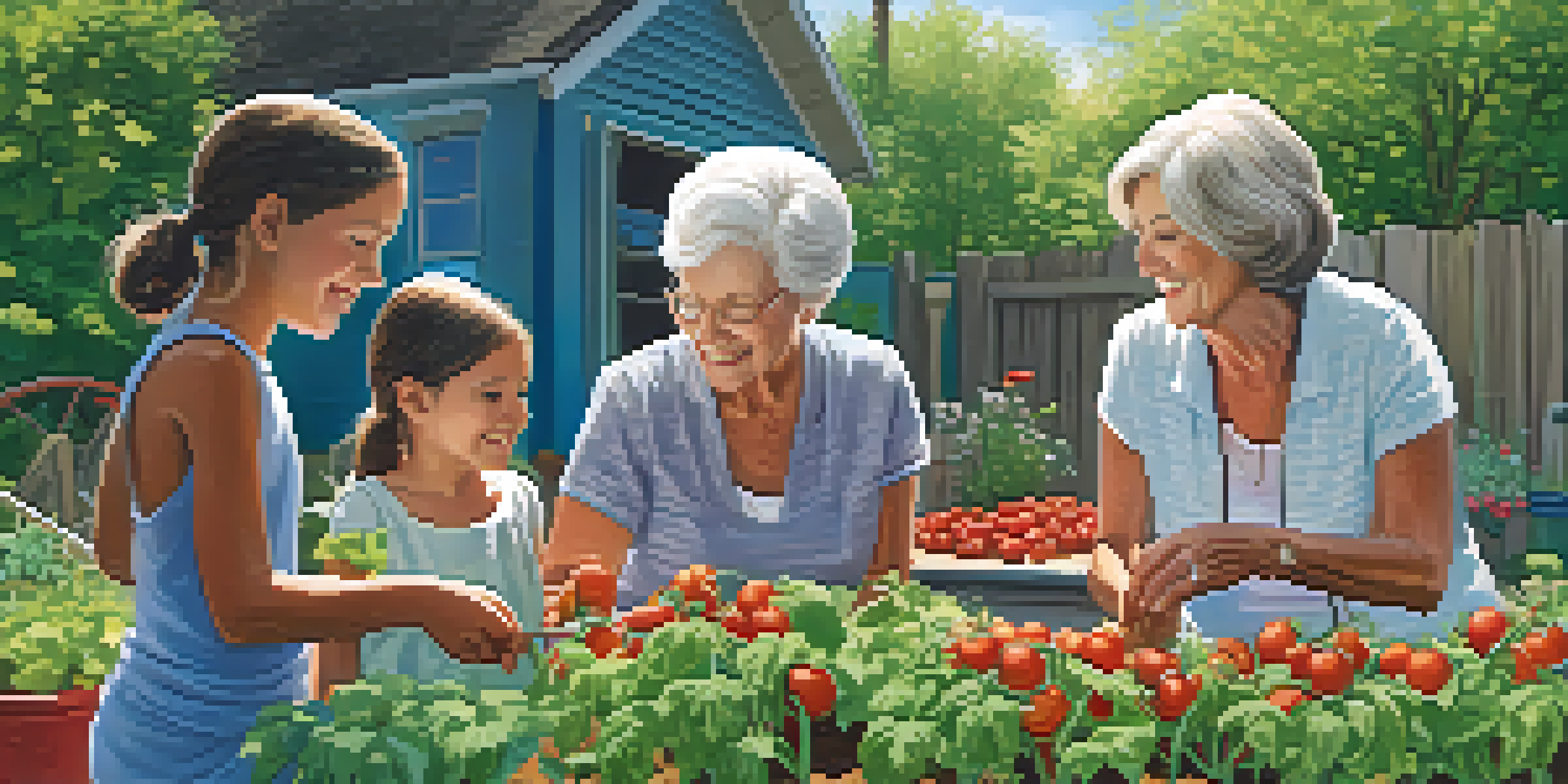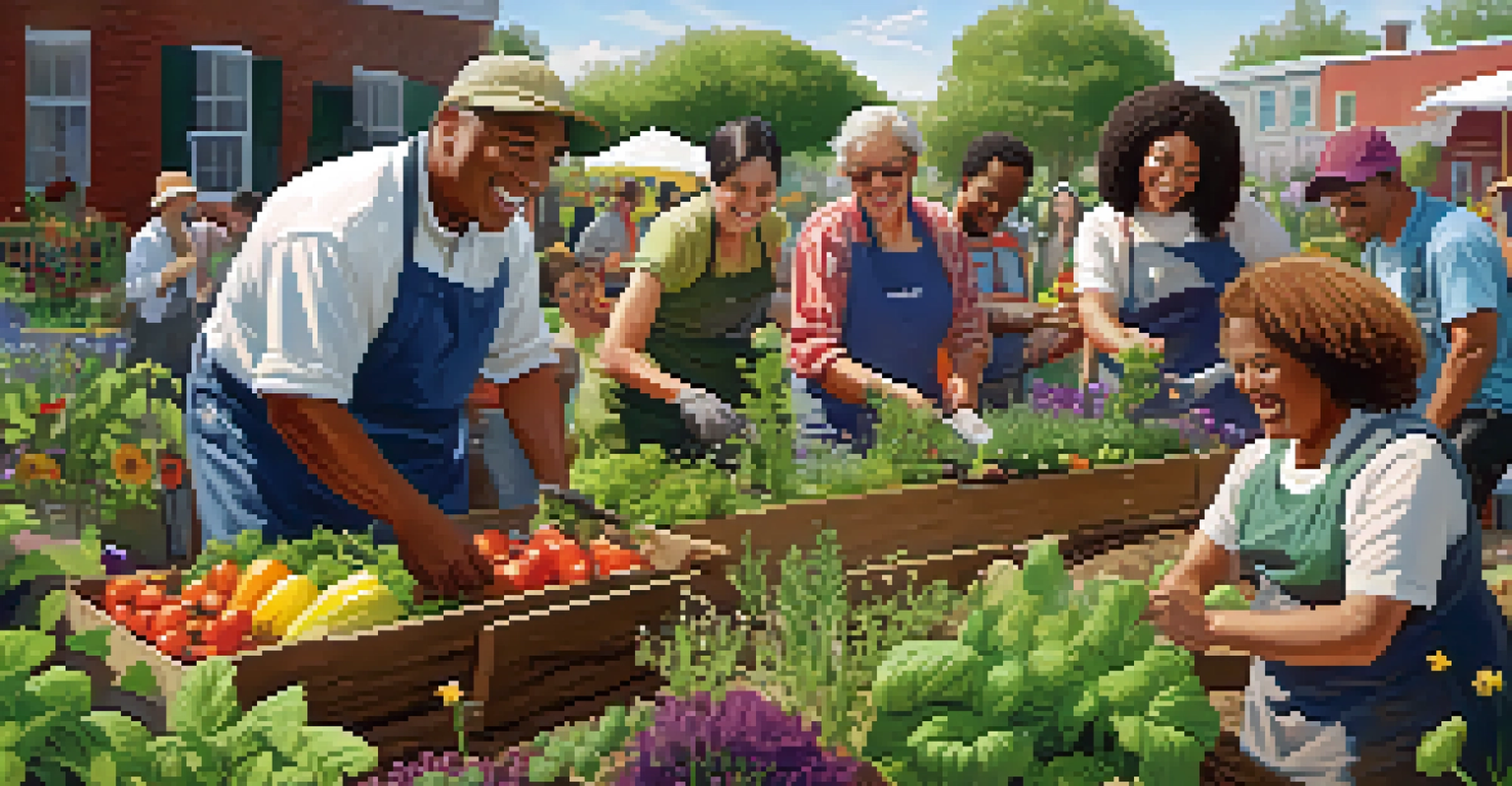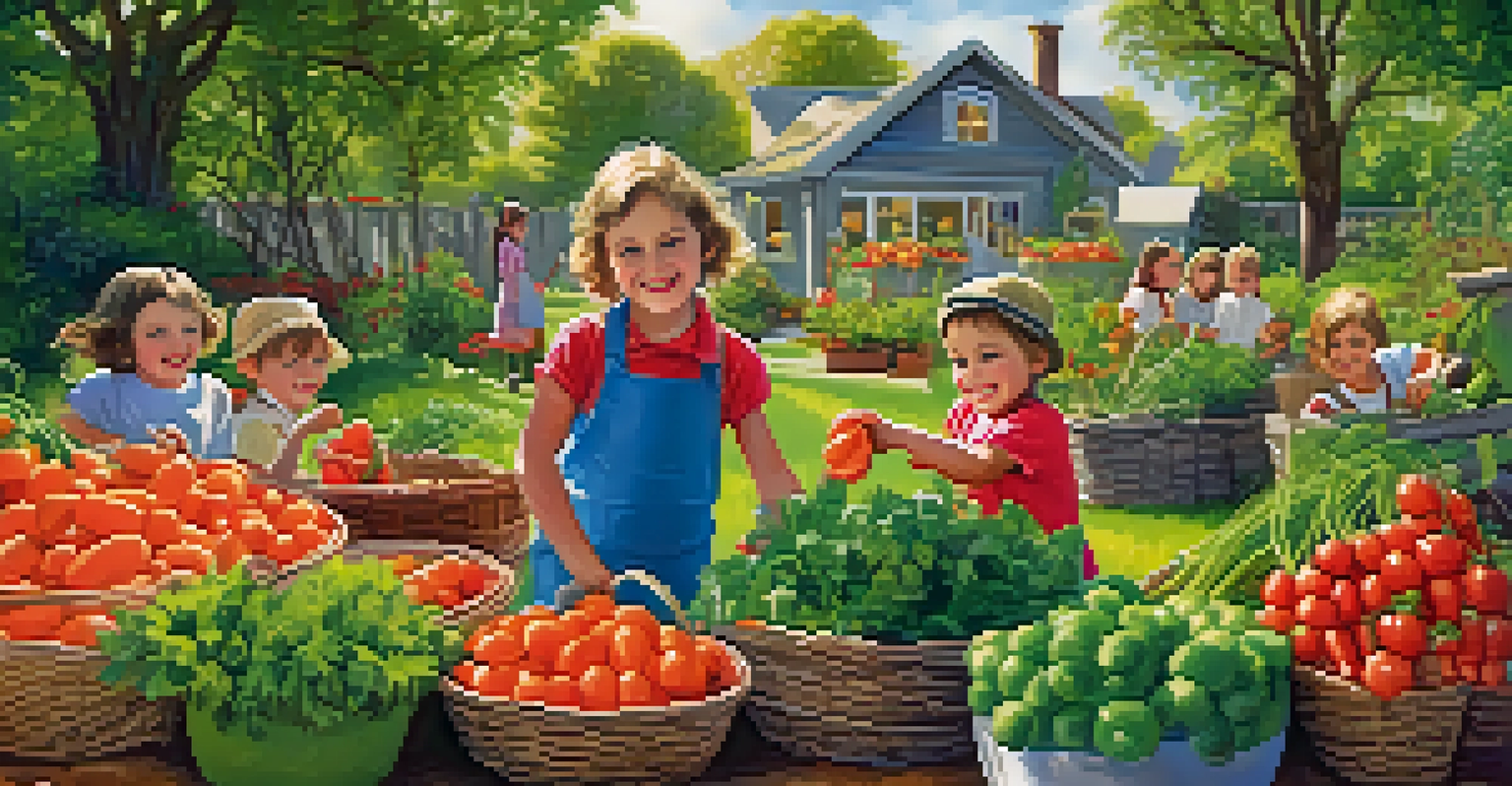Shared Gardening: Connecting Generations Through Nature

The Joy of Shared Gardening: A Growing Trend
Shared gardening is more than just planting seeds; it’s about cultivating relationships. In recent years, community gardens have blossomed across neighborhoods, drawing people of all ages together. This growing trend highlights how gardening can be a delightful way to connect with others while enjoying nature.
To plant a garden is to believe in tomorrow.
Imagine a grandmother teaching her grandchild how to plant tomatoes while sharing stories from her childhood. These moments not only teach valuable skills but also create lasting memories. The act of gardening becomes a bridge that connects generations, fostering bonds that might otherwise fade.
Moreover, shared gardening encourages a sense of community and belonging. As people come together to nurture their plants, they also nurture friendships, forming support networks that can last a lifetime. It’s a win-win scenario where nature and relationships both thrive.
How Gardening Encourages Intergenerational Learning
Gardening is a fantastic teacher, and its lessons span generations. Older adults often have a wealth of knowledge about gardening techniques, plant care, and local ecology. When they share this wisdom with younger generations, they not only pass on skills but also instill a love for the environment.

For instance, a simple task like composting can spark conversations about sustainability and environmental responsibility. Young ones learn about the benefits of recycling organic waste, while older gardeners can reinforce their own knowledge and values. This two-way exchange enriches both parties, creating a deeper understanding of the natural world.
Gardening Builds Stronger Connections
Shared gardening fosters relationships across generations, creating lasting memories and community bonds.
In essence, gardening becomes a classroom without walls, where practical life skills intermingle with environmental education. This shared learning experience cultivates respect and appreciation for nature while strengthening familial and community ties.
Therapeutic Benefits of Gardening Together
Gardening isn't just good for the planet; it’s also beneficial for mental and emotional health. Engaging in gardening activities can reduce stress, improve mood, and enhance overall well-being. When families garden together, they create a shared space of tranquility and joy amidst the chaos of daily life.
Gardening adds years to your life and life to your years.
Picture a group of friends or family members digging in the soil, laughing, and enjoying each other’s company. This shared experience not only allows for physical activity but also fosters emotional connections. It’s a beautiful way to unwind and share a sense of purpose.
Furthermore, the act of nurturing plants can be incredibly rewarding, especially when results are visible. Watching seeds sprout and flowers bloom provides a sense of accomplishment that can be shared among all generations involved, creating a joyful atmosphere filled with positivity.
Building Community Through Shared Gardening Projects
Community gardening initiatives often emerge from a shared desire to enhance local environments. These projects can transform vacant lots into vibrant green spaces, bringing together people from all walks of life. They foster collaboration and teamwork, which are essential for successful gardening.
For example, consider a local community garden where families, seniors, and children work side by side. Each participant contributes their unique skills and perspectives, making the garden a patchwork of ideas and cultures. This collaboration not only beautifies the neighborhood but also strengthens community bonds.
Gardening Teaches Sustainability
Engaging in gardening provides valuable lessons about environmental responsibility and healthy eating habits.
Moreover, community gardens can serve as educational hubs, offering workshops and events that cater to various interests. These gatherings reinforce the idea that gardening is not just an individual activity; it’s a communal experience that enhances the fabric of society.
Encouraging Healthy Eating Habits Through Gardening
Shared gardening can also play a significant role in promoting healthy eating habits. When families grow their own fruits and vegetables, they become more aware of where their food comes from. This hands-on experience can lead to more nutritious choices and a greater appreciation for fresh produce.
Imagine children excitedly harvesting carrots and tomatoes from their garden, eager to taste the fruits of their labor. This experience not only teaches them about the joys of healthy eating but also encourages them to try new foods. The connection between growing and consuming food becomes more tangible.
Furthermore, gardening can inspire families to cook together, creating cherished traditions around meal preparation. As they gather around the dinner table to enjoy the fruits of their labor, they reinforce healthy eating habits and nurture family bonds simultaneously.
Gardening as a Way to Preserve Cultural Traditions
Gardening often carries cultural significance, with various plants and gardening techniques passed down through generations. For many families, gardening is a way to honor their heritage, whether it’s growing traditional herbs or vegetables specific to their culture. This practice creates a unique connection between past and present.
Consider a family that shares recipes and planting techniques from their ancestors. As they grow these plants together, they’re not just cultivating a garden; they’re preserving their family history. This act of remembrance enriches the gardening experience and reinforces cultural identity.
Cultural Traditions Through Gardening
Gardening can preserve cultural heritage by passing down traditional practices and recipes within families.
By engaging in shared gardening, families can celebrate their traditions while introducing younger generations to their roots. It’s a beautiful way to blend the old with the new, ensuring that cultural practices continue to thrive.
The Future of Shared Gardening: A Sustainable Legacy
As the world becomes more urbanized, the importance of shared gardening will only grow. These green spaces offer a refuge from the concrete jungle and an opportunity for communities to come together. The future of shared gardening looks bright, with an increasing number of initiatives aimed at involving diverse populations.
With a focus on sustainability, many community gardens are now incorporating eco-friendly practices such as permaculture and organic gardening. These methods not only benefit the environment but also teach valuable lessons about sustainability to future generations. It’s about leaving a legacy that honors both people and the planet.

Ultimately, shared gardening represents a hopeful vision for the future. By connecting generations through nature, we can cultivate not only beautiful gardens but also resilient communities that value collaboration, education, and sustainability.